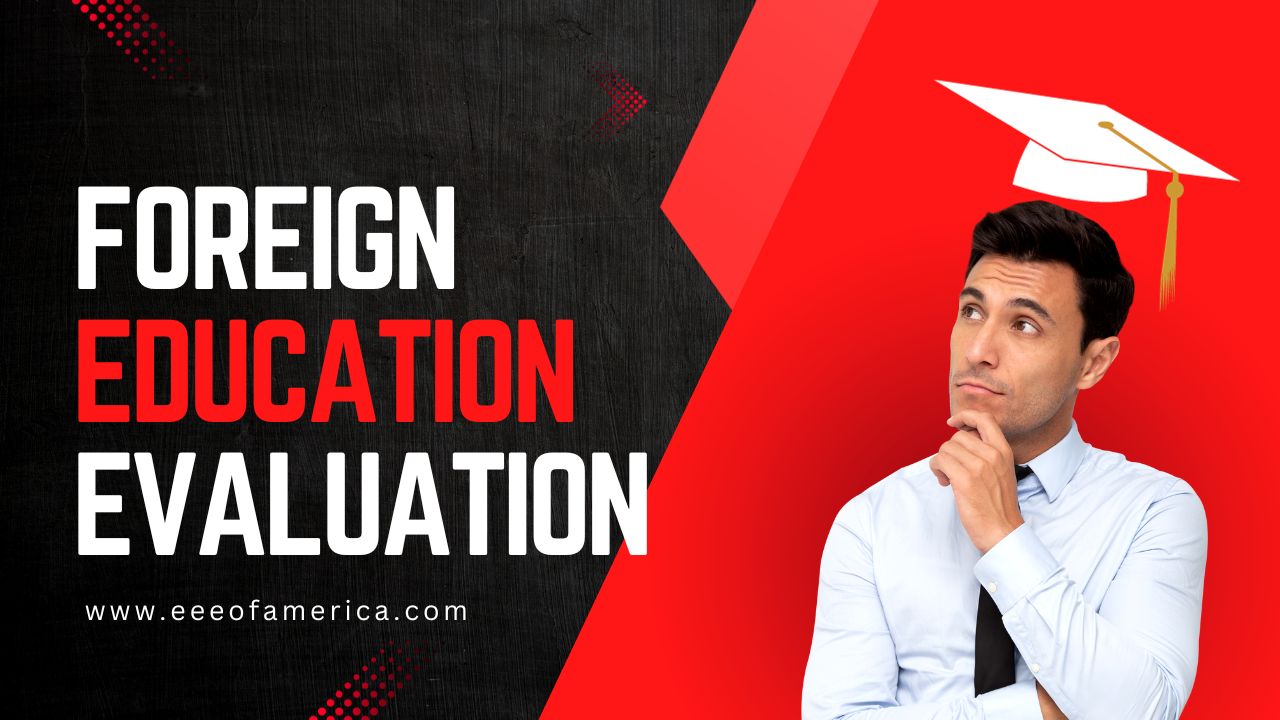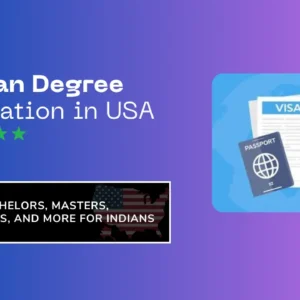Exploring opportunities of studying abroad opens up a world of possibilities, but understanding how to leverage your international education can be a bit confusing and stressful. This guide is here to be your friendly companion, offering practical insights and tips to make your foreign education evaluation journey smooth.
EEE OF America has always helped aspired learners and young skilled workforce to get the desired education evaluation or associated services for H1B and different purposes.
Foreign Education Evaluation: A Quick Overview
Foreign education evaluation might sound expensive and complex, but at its core, it’s about assessing your academic credentials from abroad and comparing them to local standards. It’s an essential step for educational institutions, employers, and licensing bodies to comprehend the true value of your global education.
Why Foreign Education Evaluation Matters?
Think of foreign education evaluation as your guide, helping translate the language of your international qualifications into terms that make sense in your home country.
Here’s why it’s important:
- Pursuing Further Education: Whether you’re eyeing a graduate program or a professional course, a foreign education evaluation proves your academic eligibility in a language everyone understands.
- Securing Employment: Many employers, especially in regulated professions, need foreign education evaluations to understand if your qualifications align with their job requirements.
- Obtaining Professional Licenses: If you plan to practice your profession at home, some licensing boards may ask for a foreign education evaluation during the registration process, making sure you’re equipped for success.
Practical Steps For Foreign Education Evaluation
- Choosing Your Evaluation Service Provider: Selecting a reputable organization that specializes in foreign education evaluation is like choosing a reliable travel guide. Check reviews and accreditations to ensure you’re in good hands.
- Gathering Your Documents: Keep things organized by having your transcripts, diplomas, and other relevant documents ready. If needed, make sure they’re translated accurately, adding a personal touch to your journey.
- Submitting Your Application: Completing the application form and paying the necessary fees to your chosen evaluation service provider should feel like a straightforward process, just like booking a ticket for your next adventure.
- Evaluation Process: The service provider, much like a seasoned professional, will carefully analyze your documents, comparing them to local qualifications. You’ll receive a detailed report outlining the equivalency of your foreign qualifications in a way that resonates with your home country.
Recognizing Foreign Qualifications in the United States – the Human Touch You Need
Understanding the U.S. recognition process involves different entities:
- Education Institutions: Seek guidance from the admissions office on evaluating foreign credentials for enrollment – a bit like getting advice from a fellow traveller.
- Employers: Communicate with the human resources office for insights on evaluating foreign qualifications when seeking employment. It’s like having a conversation with a colleague to understand the local culture.
- State-Level Licensing Authorities: Refer to the state licensing board for specific procedures on evaluating foreign qualifications for licensed professions, almost like checking in with local experts.
Tips for a Smooth and Personalized Evaluation Journey
- Start Early: Initiate the evaluation process well in advance of any application or employment deadlines – giving yourself the gift of time, just like a well-planned vacation.
- Stay Organized: Keep your documents to save time and avoid frustration during the evaluation process. It’s akin to packing your suitcase efficiently for a hassle-free journey.
- Communicate Effectively: Maintain clear communication with your evaluation service provider and address any questions or concerns promptly – fostering a connection much like reaching out to a friend for guidance.
- Ask for Help When Needed: If you encounter difficulties, don’t hesitate to seek guidance from your service provider or educational advisors. It’s like asking a local for directions when you’re exploring a new place.
In essence, foreign education evaluation is an investment in your future. With a good understanding of the process and these personalized tips, you can navigate this maze with confidence, leaving any traces of artificiality behind.
FAQ
Q1: What is foreign education credential evaluation?
A: Foreign education credential evaluation is the process of assessing and comparing academic credentials earned in another country with the standards and qualifications in your home country. This evaluation is crucial for educational institutions, employers, and licensing bodies to understand the value and equivalency of your international education.
Q2: How do you validate foreign education?
A: Validating foreign education involves obtaining a comprehensive evaluation from a reputable organization authorized to assess international credentials. The process typically includes submitting relevant documents such as transcripts and diplomas, which are then analyzed and compared to local qualifications. This validation helps in demonstrating the equivalency and worth of your foreign education in your home country.
Q3: What is the WES evaluation of a foreign degree?
A: WES, or World Education Services, is a widely recognized organization that provides foreign education evaluations. Their evaluation involves a thorough assessment of your academic credentials, including transcripts and degrees, to determine their equivalence in the U.S. or Canada. The WES evaluation is a reputable and commonly accepted credential assessment for those seeking further education or employment in these countries.
Q4: What is education evaluation for a visa?
A: Education evaluation for a visa is a process where your foreign academic credentials are assessed to meet the educational requirements for a visa application. This evaluation helps immigration authorities and educational institutions in the host country understand the value and equivalency of your international education. It ensures that your academic qualifications align with the standards set by the host country for visa purposes.
Conclusion:
This guide aims to simplify the complexities of foreign education evaluation, providing practical insights for a journey that feels as personal as it gets. Stay tuned for more insights in upcoming posts, where we’ll explore topics like choosing the right service provider and understanding different evaluation types, always with a focus on the human aspect.
Your journey of evaluation is not just a process; it’s a gateway to a world of possibilities. Happy evaluating, most authentically and humanly possible!




